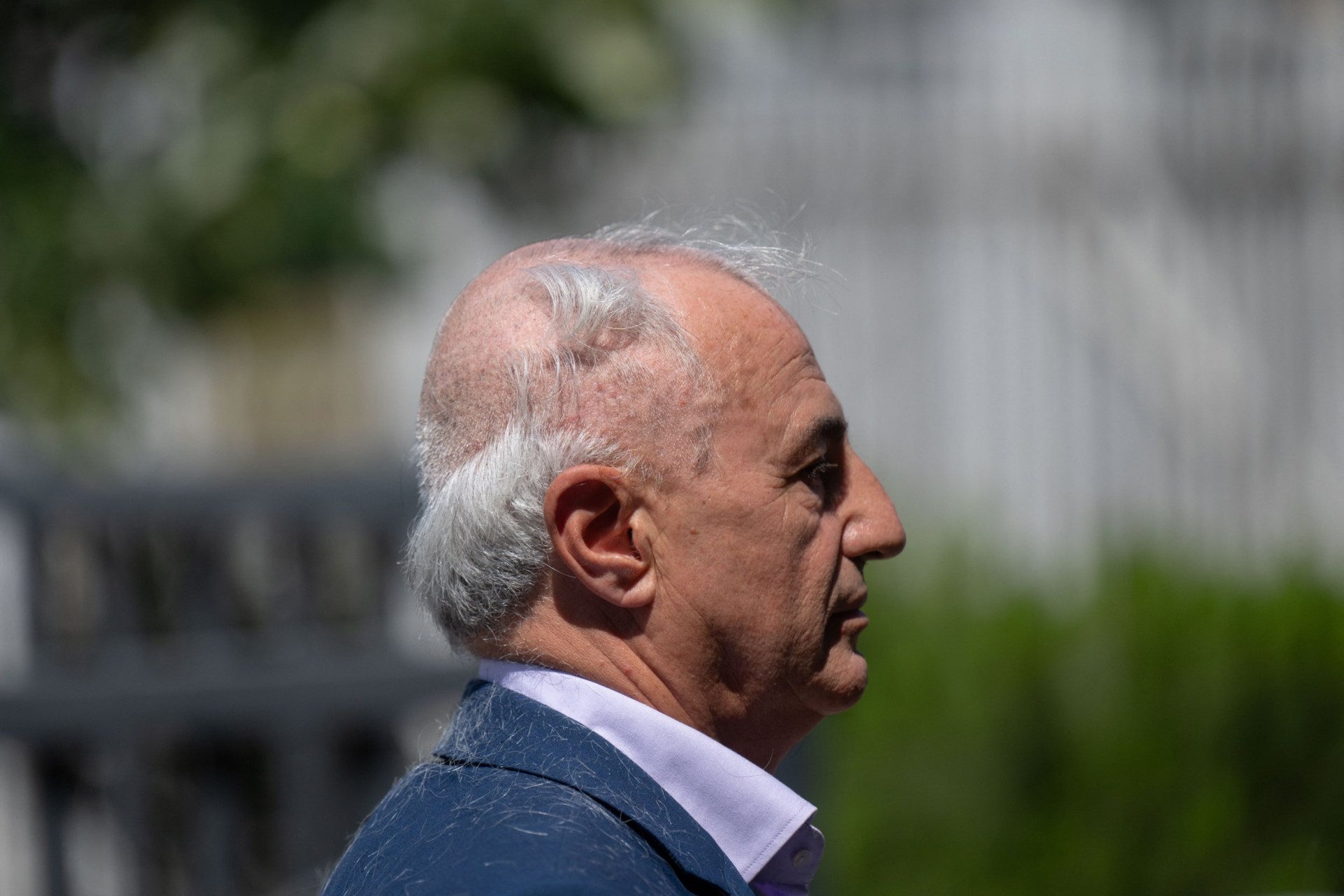A Symbolic Protest in Kosovo
In a bold and unconventional act of defiance, a lawyer in Kosovo took to the streets with a shaver in hand, drawing attention to the country’s ongoing political crisis. The protest, led by attorney Arianit Koci, was a direct response to the government’s failure to form an assembly for the fifty consecutive time. Standing outside the Kosovo Assembly in Prishtina, Koci shaved his white hair in front of reporters, a symbolic gesture highlighting the deepening challenges facing the nation.
Koci explained that his actions were meant to convey a powerful message: “Our statehood in Kosovo is also being threatened. Friends and enemies are becoming convinced that we are not capable of maintaining a state.” His demonstration captured the frustration of many Kosovans who feel their government is failing to uphold democratic principles and maintain stability.
Despite the dramatic nature of his protest, Koci’s efforts did not go perfectly. As onlookers filmed the event, it became clear that he missed several patches of hair, adding a touch of humor to an otherwise serious situation. However, the message remained clear—this was not just about personal appearance but about the future of the nation.
The public response to Koci’s protest has been overwhelmingly positive. Many Kosovans have praised his courage and commitment to the cause. One supporter wrote: “You are the clear conscience of the nation! Every action of yours fills me with hope, and gives me the message that this country has no end.” Another added: “Respect. Don’t mess with these fools.”
This incident comes at a time when tensions in Kosovo are rising due to a prolonged political stalemate. Months after the recent elections, the country remains in a state of deadlock. The issue stems from the fact that the ruling party, Vetevendosje, led by outgoing Prime Minister Albin Kurti, did not secure enough seats to install its chosen speaker. This has led to accusations from other MPs that Kurti is undermining the constitutional order by failing to form an assembly.
MP Vlora Çitaku expressed her concerns, stating: “162 days is not a lot for Albin Kurti because for him, this time is part of a plan. For the overthrow of the constitutional order, for the delegitimisation of democracy and institutions and for the undoing of the very DNA of our society. You will not succeed because this is not just a political crisis, it is a moral crisis, and we must stop it.”
Koci’s protest is not the first time he has taken a stand against the political impasse. Earlier this month, he brought donkeys—known for their stubbornness—outside the parliament as a metaphor for the current deadlock. These acts of protest reflect the growing frustration among citizens who feel their voices are not being heard.
Kosovo has a history of turbulent political moments. In 2023, chaos erupted during a session when an opposition party member sprayed water at PM Kurti, leading to a heated exchange that required police intervention. These incidents highlight the volatile nature of the political landscape in the region.
Kosovo declared independence from Serbia in 2008, a move that has continued to face resistance from Serbian nationalists. The conflict between Kosovo and Serbia in the late 1990s resulted in widespread violence, with thousands of ethnic Albanian Kosovars losing their lives. NATO’s intervention in 1999 eventually led to the withdrawal of Serbian forces, but the scars of the war remain.
Today, the people of Kosovo continue to seek stability and a functioning government. Protests like Koci’s serve as a reminder that the struggle for a strong and independent state is far from over. As the country navigates its complex political landscape, the voices of its citizens remain crucial in shaping its future.







